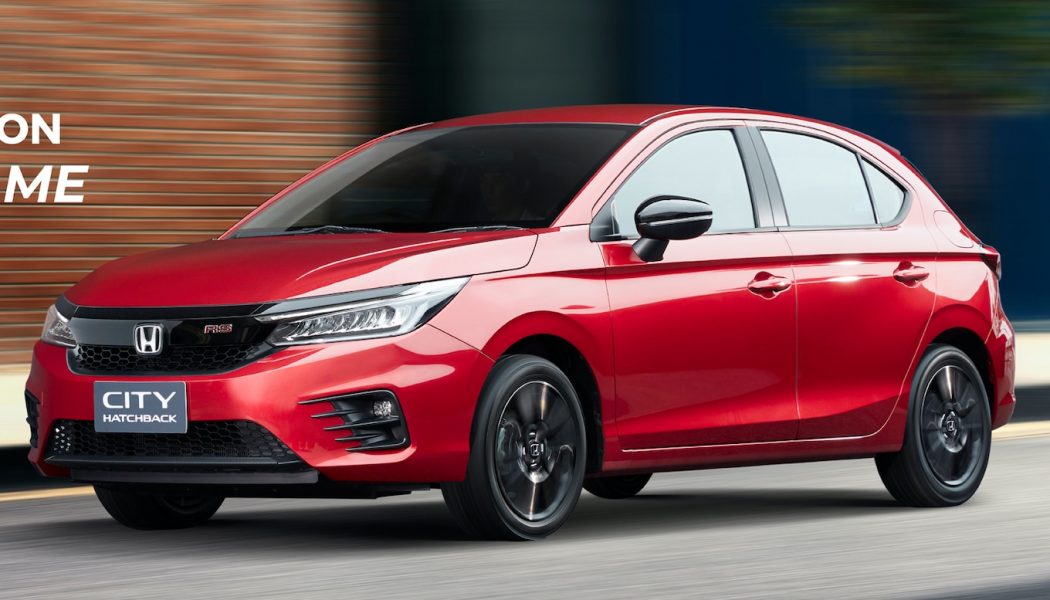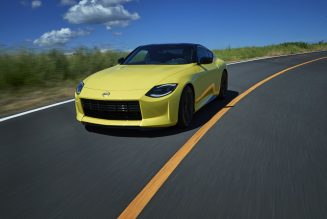Let’s get this straight—the Honda City is not one of those forbidden fruit cars that we wish we had here. The reason the City is never coming to America is because it was specifically developed for emerging markets—such as Mexico and Thailand. It doesn’t drive as well as the Civic, it has cheaper interior materials and low-spec technology, and it lacks the safety features and standards for a country like the U.S., where safety is a priority for the customer and the government alike.
But when the new City broke cover last year, we were surprised to see how much it had changed compared to the outgoing generation, which we drove in Mexico City at the end of 2019. The new 2021 Honda City is finally making its way into the Mexican market, as Honda announced it will be positioned between the subcompact Fit hatchback (which is still on sale there) and the larger Civic compact.
Sharing Some of the Civic’s Looks
At first glance, you might think the new City is the current Civic sold here in the U.S., and historically that’s the philosophy that Honda has taken with its emerging markets sedan; the previous-gen City looked like a ninth-gen Civic, and this new City looks like the tenth-gen compact.
The slim, upright chrome grille is familiar for those who live in America, but the headlights are mature instead of swoopy. The City also lacks the tenth-generation Civic’s flamboyant styling, adopting toned-down lines that flow softly from front to back. The rear is completely different from the Civic, but it can still be recognizable as a Honda; there’s no ducktail element or aggressive lines.
A Clean, Modern-ish Cabin
The City arrives in Mexico in three different trims—Uniq, Sport and Prime. Because the City was designed for emerging markets, the list of options and safety features is much smaller compared to what we’re used to seeing in America.
Prime models, like the one pictured, arrive with an 8.0-inch touchscreen with Apple CarPlay and Android Auto, push-button starting, and automatic climate control. Like in all Hondas, the cabin is open and airy, something we noticed when we drove the previous-gen model. Don’t expect to see any kind of Honda Sensing active safety features (such as automated emergency braking or adaptive cruise control), as the top trim is the only one that gets a backup camera and Honda’s now-old LaneWatch sideview camera that turns on when the driver activates the right turn signal.
Weak on Power
Regardless of the trim, all versions are powered by a 1.5-liter four-cylinder engine that makes 119 hp and 107 lb-ft of torque—the same engine that powered the previous model. Like we noted when we drove it, that’s barely enough power to go uphill on Mexico City’s roads, where altitude and the thin air play big roles in sapping output from naturally aspirated engines. A six-speed manual transmission comes standard, but Sport and Prime trims get a continuously variable automatic (CVT).
The Hatchback we Want
Despite the City sedan being kind of meh, the hatchback, which debuted in Thailand, is very cool-looking. Media reports say the hatchback might make it south of the border next year, which would be a good addition to Honda’s lineup there, as subcompact hatchbacks are popular in Mexico and the rest of Latin America.
The Honda City Hatchback reminds us a bit of the Mazda 2, especially from the C-pillar back. The RS trim, which adds a few blackened details such as the grille, wheels, mirror caps and lower fascia, is definitely a looker.
For now, Thailand is the only market where the City Hatchback is being sold, but we hope to see it expand to other countries soon. Just don’t expect either City to make it to America, where Honda has seemingly shifted its focus away from very small vehicles (see: the Honda Fit’s death) and toward crossovers and SUVs, as well as its compact-size Civic, which soon will be redesigned.









